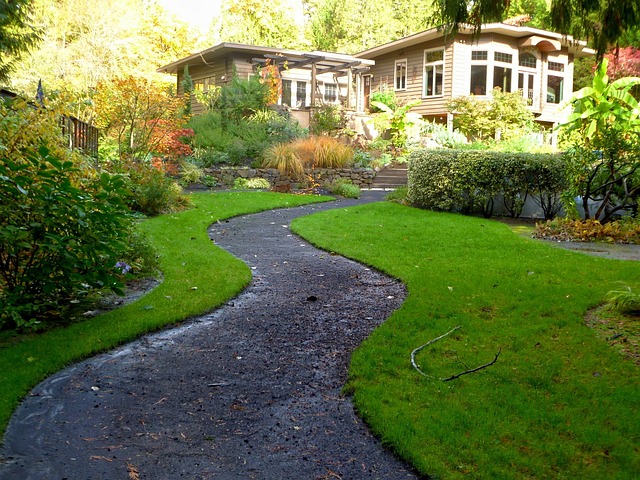Composting is a powerful tool for gardeners, transforming yard waste like leaves and clippings into nutrient-rich compost that improves soil health and plant growth. Effective composting involves balancing green (nitrogen-rich) and brown (carbon-rich) materials through layering, proper moisture, and aeration. This sustainable practice reduces landfill strain, enhances garden vibrancy, and contributes to environmental sustainability by minimizing organic waste sent to landfills, where it produces greenhouse gases. By recycling yard waste responsibly, gardeners can create healthier plants while fostering eco-friendly habits.
For garden enthusiasts, composting is not just an eco-friendly practice but also a valuable tool for enriching soil health and fostering robust plant growth. This article guides you through the process of understanding compost creation, highlighting its numerous benefits. We’ll explore effective strategies for responsible yard waste removal while offering practical recycling tips to transform organic materials into nutrient-rich compost tailored for your garden.
- Understanding Compost Creation: The Benefits for Gardeners
- Yard Waste Removal: What You Need to Know
- Recycling Tips: Creating Rich Compost for Your Garden
Understanding Compost Creation: The Benefits for Gardeners

Understanding compost creation is a game-changer for garden enthusiasts, offering numerous benefits that extend far beyond simple waste reduction. By recycling yard waste, such as leaves, grass clippings, and garden trimmings, gardeners can transform their organic material into a nutrient-rich resource that enhances soil health and plant growth. Compost acts as a natural fertilizer, improving soil structure, increasing water retention, and promoting the proliferation of beneficial microorganisms.
This eco-friendly practice not only reduces the amount of waste sent to landfills but also encourages a more sustainable gardening approach. Effective compost creation involves a balance of green materials (rich in nitrogen) and brown materials (high in carbon). Gardeners can easily manage this process by layering organic matter, maintaining proper moisture levels, and providing aeration. With consistent effort, they’ll soon enjoy the rewards of healthier plants and a more vibrant, thriving garden—all while contributing to effective yard waste removal and recycling.
Yard Waste Removal: What You Need to Know

For garden enthusiasts, managing yard waste is a crucial aspect of sustainable gardening practices. Instead of relying on traditional removal methods that can strain local landfills, adopting efficient yard waste removal and recycling strategies offers numerous environmental benefits. By composting organic materials such as leaf debris, grass clippings, and food scraps from your kitchen, you not only reduce the volume of waste sent to landfills but also create a valuable resource for your garden.
Effective yard waste removal involves separating compostable materials at their source, ensuring they are properly collected and processed. This includes using designated containers or bins for organic waste and scheduling regular collections with your local recycling program. Additionally, integrating composting into your garden routine can be as simple as creating a compost pile or bin in a corner of your yard, allowing nature to do the work of decomposing organic matter into nutrient-rich soil amendments that will foster healthier plants and reduce your environmental footprint.
Recycling Tips: Creating Rich Compost for Your Garden

Recycling yard waste is an excellent way to reduce, reuse, and benefit your garden at the same time. Instead of sending organic materials to landfills, where they produce greenhouse gases, turn them into valuable compost. This natural process not only cuts down on waste but also creates a rich, nutrient-dense material that enhances soil structure, promotes healthy plant growth, and reduces the need for chemical fertilizers.
Start by collecting grass clippings, leaf litter, vegetable scraps, and other organic materials from your yard and kitchen. Avoid including meat, dairy, diseased plants, and pet waste to prevent pest and disease issues. Layer these items in a compost bin or pile, ensuring proper aeration, and maintain moisture levels for ideal decomposition. Regularly turn the pile to speed up the process, resulting in dark, crumbly compost ready to enrich your garden beds.
Compost creation is a sustainable practice that not only reduces yard waste but also enriches garden soil, promoting healthier plants. By understanding the benefits of composting and implementing recycling tips, gardeners can play a vital role in environmental conservation while cultivating vibrant, fruitful gardens. Effective yard waste removal through composting is a simple yet powerful step towards a greener, more eco-friendly lifestyle.
